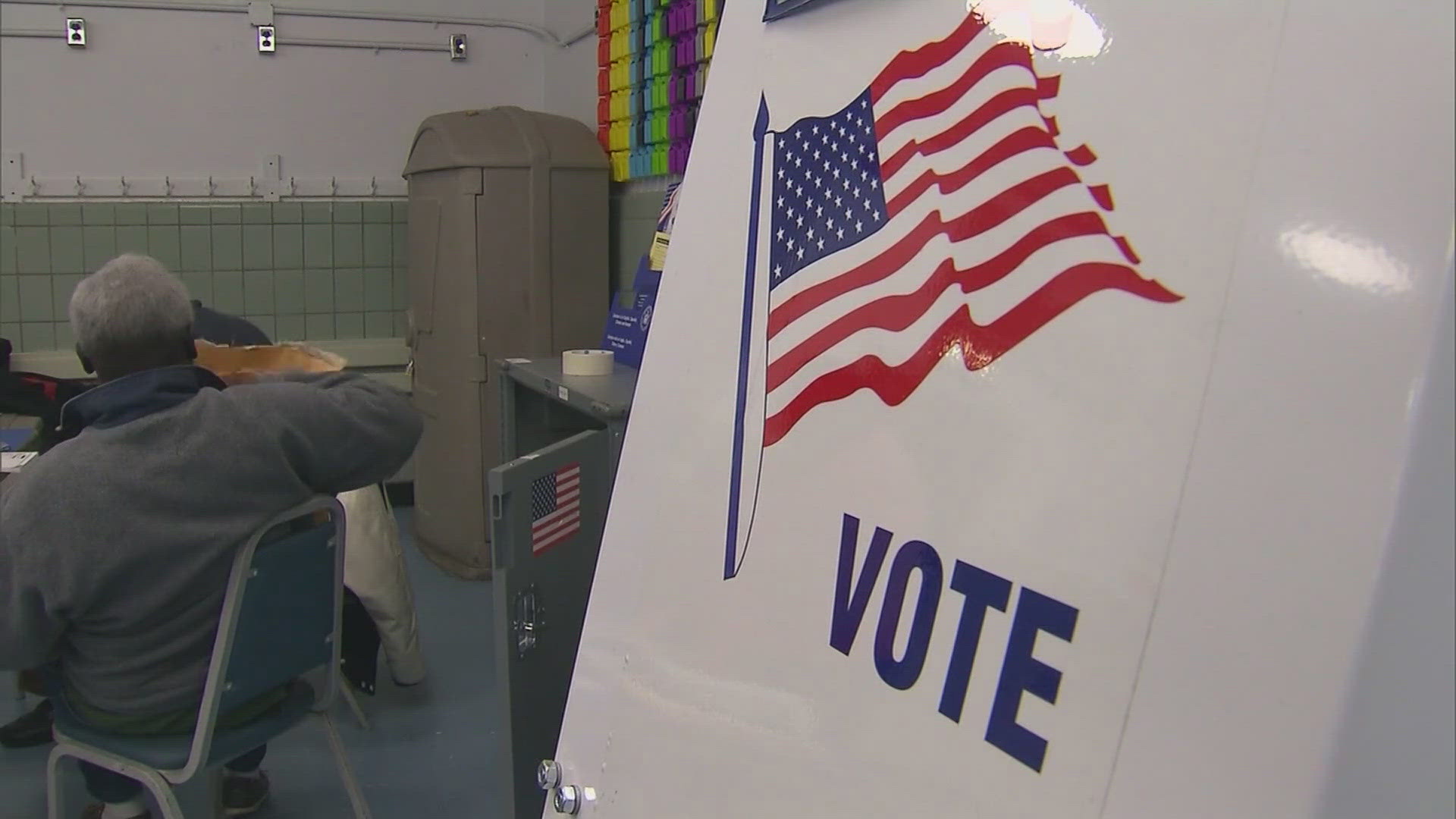DENVER — All politics are local, right?
Sometimes that's hard to believe in a presidential election year, when the top billing on the ballot is the top job in the U.S.
Every seat in the Colorado State House and half the seats in the Colorado State Senate are up for election or reelection.
In Colorado, the Democrats have a strong majority in the House over Republicans: 41-24. The House Speaker will be a Democrat in 2021.
The Senate, however, is closer, but not as close as it has been. Democrats hold a 19-16 edge over Republicans. That means it would take just two seats to swing the Senate back to the Republicans, assuming the current Republican seats remain held by a Republican.
House members serve two-year terms and can serve as many as four consecutive terms. Senate members serve four-year terms and can serve as many as two consecutive terms. A lawmaker can run for House or Senate, even after exhausting consecutive term limits, after taking four years off.
Since Gov. Jared Polis (D-Colorado) took office in 2019, he has had a Democratic majority in the House and Senate.
Between 2011-2019, when Gov. John Hickenlooper (D-Colorado) was the top executive, the state legislature was split except for two years. In 2013-14, the House and Senate were controlled by Democrats. In 2013, Colorado passed gun control legislation signed into law by Hickenlooper, including a ban on magazines that hold more than 15 rounds of ammunition and universal background checks (including private sales).
Having a split legislature can put an additional check and balance in place from one party having complete control.
Over the last two years, Colorado passed free full-day kindergarten and a red flag law, revamped the oil and gas commission, banned the death penalty and most recently, approved sweeping police reform.
Polis and Democrats in the legislature don't always agree, but much of what the Polis has wanted to achieve has been possible because the House and Senate are both controlled by Democrats.
Senate races to watch
Sen. Jack Tate (R-Centennial) is not seeking reelection in Senate District 27.
His seat is one that Republicans need to hold onto, otherwise it will need more than two districts to flip. Senate District 27 covers Centennial, parts of Greenwood Village, Englewood, Littleton and Foxfield.
The two candidates running are Republican Suzanne Staiert and Democrat Chris Kolker.
Staiert is the former Deputy Secretary of State under former Republican Secretary of State Wayne Williams. She was also the attorney for Public Trust Institute, in the groups ethics complaint against Hickenlooper.
Kolker is a financial planner, who ran for the State House in 2018, but lost to then-Rep. Susan Beckman (R-Littleton) by 374 votes.
In Senate District 25, Sen. Kevin Priola (R-Henderson) is running for reelection.
His district covers Henderson, Brighton and east toward Bennet.
In the last two years, Priola has been seen as the Republican Senator that Democrats can turn to for support.
Most recently, he and Sen. Jeff Bridges (D-Greenwood Village) sponsored the bill to allow bars and restaurants to continue to serve takeout alcohol through June 30, 2021, even after the state is no longer under a COVID-19 emergency.
His Democratic challenger is Paula Dickerson, an instructor in the Adams 12 Five Star School District.
In 2016, Priola defeated Democrat Jenise May by almost 2,400 votes (52%-48%).
Voters in Senate District 26 will have the first time to vote on their current senator. Bridges was appointed to his seat in Jan. 2019 by a vacancy committee, following the resignation of then-Sen. Daniel Kagan. Bridges' vacancy committee included 119 people, made up of party faithfuls who attended previous caucuses to be selected on the committee.
Bridges' Republican opponent is former Aurora City Councilman Bob Roth.
In 2016, when this seat was last on a ballot, Kagan defeated Republican Nancy Doty by almost 5,500 votes (53%-47%).
Senate District 19 has been a toss-up the last three elections (2012, 2014 and 2016).
Sen. Rachel Zenzinger (D-Arvada) is seeking reelection against Republican challenger Lynn Gerber.
The reason this district has had three elections in a four-year period is because then-Sen. Evie Hudak (D-Westminster) resigned in 2013 before organizers could submit signatures to attempt a recall against her.
A vacancy committee appointed Zenzinger to the seat. Voters in 2014 were allowed to have their say about who would finish out the final two years of the term. Republican Laura Woods defeated Zenzinger by 663 votes. Libertarian candidate Gregg Miller received more than 3,600 votes.
In a 2016 rematch, Zenzinger beat Woods by 1,478 votes. Libertarian candidate Hans Romer received more than 5,000 votes.
In 2012, Sen. Evie Hudak defeated Republican Lang Sias by 584 votes. Libertarian candidate Lloyd Sweeney received more than 5,000 votes.
There is no Libertarian candidate this year.
In the Senate, three lawmakers up for reelection this year were appointed to their seats by a vacancy committee. Bridges, Sen. Bob Rankin (R-Carbondale) and Sen. Chris Hansen (D-Denver) were all appointed after the previous senator for that district resigned.
It will be the first time voters in those Senate Districts, 26, 8 and 31, respectively, will have a say about who represents them in the State Senate.
Previous stories about vacancies:
RELATED: 17 Colorado lawmakers were appointed by vacancy committees. Is that the best method we have?
SUGGESTED VIDEOS: Politics



